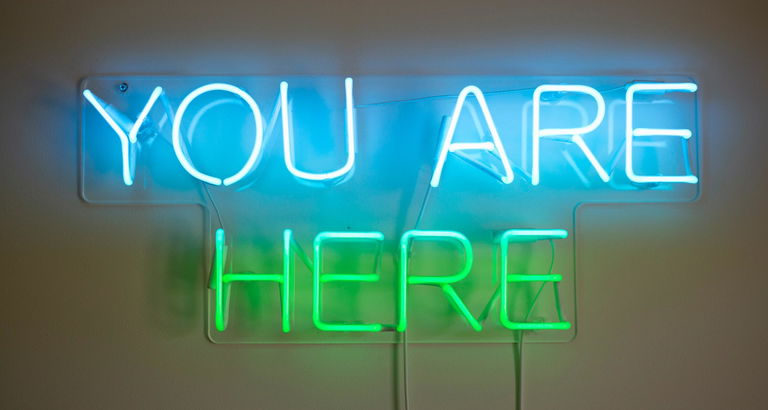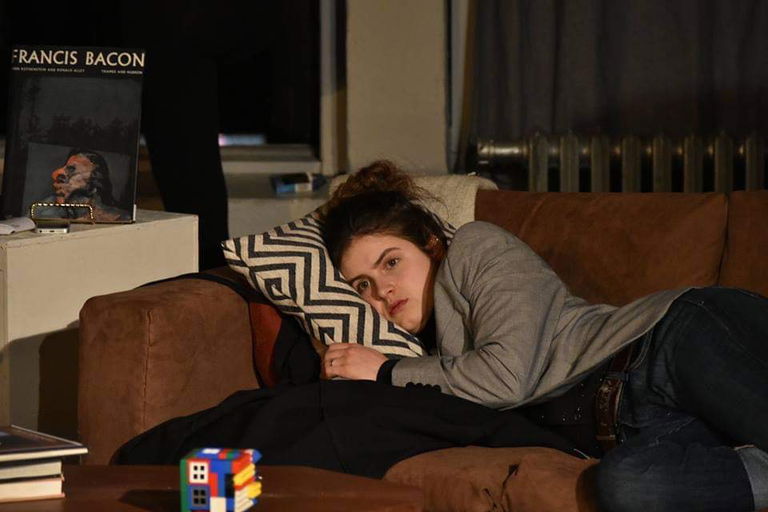
RE:PURPOSE
Mike Green for Culture Days
Jun 29, 2021
Since 2009 I’d built my life up towards one purpose, one very long shot: to entertain groups of people as a Stand-up Comedian.
Before COVID-19 I performed 3-5 nights a week and produced more shows than anyone in my city of almost one million people. I’d get on the road at least once a month to work corporates or clubs and sometimes even carnivals. Whether it was a one-night headliner set in glamorous Winkler, Manitoba, or a week-long run hosting Kids’ Pedal Tractor Pulls in Dallas, Texas, I loved doing shows. Small crowds or big crowds, just give me a chance to kill. I could never have anticipated the stigma around the words “crowds” and “kill” lurking around the corner.

When your sense of purpose is derived from travel and/or being in front of groups of people, and both those things become illegal over the course of a weekend, how do you fill 365 days? Personally, I spent the first 60 drinking and playing online poker. I learned two things during those two months:
1: I couldn’t do this for another 300 days, I needed a purpose.
2: PokerStars is totally rigged, man.
In a normal year I’d spend about 80 days producing shows, now those days loomed like mountains threatening to crush me under the weight of sheer boredom. I was flailing for anything to make me feel productive and fulfilled. Unfortunately, everything was closed.
So, I joined my condo Board.
It turns out, an out of work Chinese Jew can be a property management company’s worst nightmare. It didn’t take long for me to figure out that there was serious work to be done, so I switched from writing jokes to strongly worded e-mails. Some basic oversight got projects on track, on budget, and aligned with the best interests of my fellow tenants. Through collaboration with the Board and flexing my own leadership skills, I successfully worked with contractors, handled routine maintenance and landscaping myself, and oversaw contract renewals in a way that worked for us.
I was taking care of my neighbours instead of the audience, and I was looking out for their budget instead of their evening of entertainment. But, it felt good. I told myself that like doing a show, any day where I promptly answered our property manager’s emails was a good day.
The Board was a start, but it hardly covered the time I normally spent working on my in-town shows, let alone being on the road. I still faced a lot of days where I couldn’t conceive of a reason to exist in the world. I also needed to replace the money I wasn’t getting from performing.
So, I started selling Pokémon.
Thanks to news-worthy current events such as COVID-19 and civil unrest, you probably missed the story about Pokémon cards. I heard, by fluke, how the trend of “ripping” (opening) packs on one’s Livestream was sending the value of particular sets parabolic. I won’t bore you with (or reveal) the details of how I identified a bulk, legal, supply of those sets, but I will tell you that I knew if I sold at market value I stood to double my money. However, it could take up to $10,000 to corner the market—a market some might argue was roughly as solid as dogecoin.
I shrugged and said, “You gotta catch ’em all.”
It was a gamble, but with demand outpacing supply, all it took was some Kijiji and Facebook Marketplace ads to become the Walter White of Pokémon in my city. In a time when collectors struggled to find 5-packs at retail, I’d show up to sales with Ziploc baggies filled with hundreds of cards at reasonable prices. Their eyes bulged, as if I actually held pocket monsters with elemental powers in my hands. By my third week selling I met a customer who already knew me by reputation.
“You sold to Tony’s crew didn’t you?” he said, his eyes locked onto the $500 of product I was unloading onto his centre console. “I knew it, man… because when I saw those Ziploc baggies… I thought, ‘this is the guy’…” I’d become Heisenberg, the man with the Blue Ziplocs.
It took work; negotiating and selling the packs, sometimes $20 at a time, sometimes $2,500. It took three months of hustling only to reach break-even. I didn’t mind. To quote Bryan Cranston’s character: I liked it. I was good at it. Ringing the bell at the Pokémon-sales office felt almost as good as doing a set. Ok, it didn’t feel nearly as “good”, but it did feel as “purposeful”. The hustle to find enough stage time is the same that got me out of bed at 6:00 am to drive across the city to close a huge sale (I learned quickly that you meet when the customer wants to, otherwise they might come to their senses).
Pre-COVID, I ran a regular show at the same address since April 2010. I’m the second longest-running stand-up show and host in Canada (the first being Calgary’s Comedy Mondays started by legendary James Moore). In 2018, I started bringing in headliners to do the room and expanded from Thursday nights to weekend shows.
It was something I took on spontaneously, but it started me on a path. Most comics hate producing or are bad at it (often both). I knew I’d rather run my own show, the way I thought it should be run, than wait around for someone to offer me stage time at a strip club at 5:00 pm (actually not the worst gig I did early on). I’d show up early every week to set up the room which was normally configured for music; moving 52 chairs, 12 tables, lighting candles and setting the lights to get the right ambience. I’d give my all to warming up the crowd at the start of every show, and after acts sometimes bombed. The comedy gods rewarded me with full audiences that appreciated the comedy club feel.
Thanks to producing my own show, I was very privileged to have an outlet where I could always invest my time and feel like I had a purpose. The downside of getting to focus only on comedy for the last decade is I only ever focused on comedy.
Between March 2020 and March 2021, I realized I don’t have a purpose; one thing I’m meant to do. I choose a new purpose every day—a goal or action I’m going to make happen through deliberate, purposeful effort. Ideally that purpose is getting in front of crowds, but it doesn’t have to be. I’m a great Board member. I like making things happen and looking out for the interest of the group. And, I like finding an angle and hustling as I did with the Pokémon.

When I get back to stand-up, I don’t expect to stop doing either of those things. I see the opportunity to bring all these skills together: I want to run stand-up classes and workshops on how to produce shows so I can help new comics in my city the same way I took on responsibility and cared for everyone in my building.
The Pokémon hustle showed me what happens when I fully commit, and made me think about the way I was approaching comedy. I was often going half way; bringing in a headliner for 2 nights of shows instead of 5, or occasionally posting short clips instead of consistently producing regular online content. If I can bet on myself the same way I did when I cornered the market I’ll be excited to see how my stand-up evolves (ideally from a Charmeleon to a Charizard).
If you’re an artist who feels like you lost your identity because COVID-19 took away your ability to perform as you normally would, look at it as an opportunity to reimagine your craft and engage with your audience—perhaps even a new crowd or community—in a different way. You don’t need to serve one purpose, but rather use everything you’ve got and everything you do to create on purpose.
This article is part of a special blog series featuring writers and creatives from across Canada (and beyond!) with stories that both highlight and celebrate Culture Days’ 2021 theme, RE:IMAGINE. Explore more stories below.
- The Road Less Travelled: Three artists reimagine success and career by Linh S. Nguyễn
- Arts in Motion by Aaron Rothermund
- Reimagining Public Spaces: The Share-It-Square in Portland, Oregon by Laura Puttkamer
- Refresh: How a Year on Instagram Redefined Artistic Communities by Eva Morrison
- Recalibrating: A Look at Opera InReach by Anya Wassenberg
- Reimagine—How the Disability Community Accesses the Arts by Rachel Marks
- Reimagining Community and the Workplace of Theatre by Natércia Napoleão
- Helm Studios flips the for-profit music model to empower artists by Aly Laube
- Curating INUA, Canada’s newest Inuit art exhibit by Carolyn B. Heller
- When Less is More: What Theatre Can Learn From a Year in Slow Motion by Megan Hunt
- RE:ORCHESTRATING Our Future: Advancing Sustainable Development Through The Arts by Ryan Elliot Drew
- RE:DEFINING Normal: A Prescription for a Canadian Cultural Landscape in Recovery by Valerie Sing Turner
- Empathy Machines?: Exploring the Relationship between Immersive Art Technologies and Feeling by Jozef Spiteri and Sunita Nigam
- La poésie pour vivre différemment la pandémie par Jérôme Melançon





